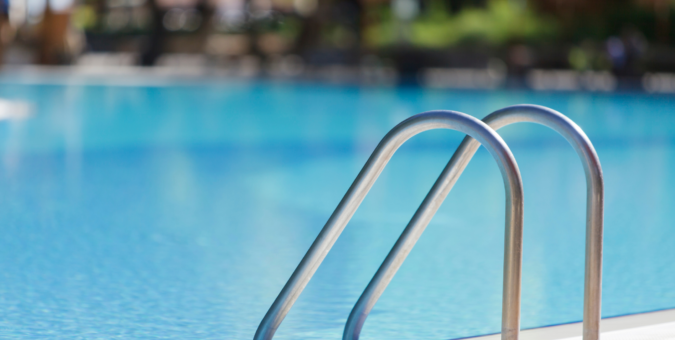
Enjoying a cooling dip in a swimming pool is one of the things many people look forward to when they go on holiday. However, whilst relaxing it is easy to forget the dangers posed by swimming pools, be that either as part of a busy hotel complex or in a self-contained villa. It is also important to remember children aren’t the only ones that are at risk when using a pool, adults also need to adhere to the rules in order to avoid death or injury themselves.
Safety requirements regarding the use of swimming pools abroad will vary greatly from country to country and requirements will not be the same as they are in the UK.
When are you most likely to have a swimming pool accident?
It is interesting to note that accidents involving swimming pools will often happen on the first or last day of a holiday when people may be tired or distracted. Accidents are not just related to young children who somehow find their way to the pool unaccompanied, adult males also account for over half of all drowning fatalities abroad according to the RoSPA. Alcohol is often a factor that is involved in swimming pool tragedies.
The Safer Tourism Foundation states that accidents were mostly down to lack of supervision, diving or jumping into shallow water or becoming entangled in the filtration system.
How to stay safe By a swimming pool
Here are a few simple steps to follow to ensure everyone enjoys their time by the pool:
- Familiarise yourself and any children with the pool to include any deep and shallow ends. Make sure you do this before you get in the pool and speak with children about pool safety.
- Is there a lifeguard on duty and when will they be in attendance? The presence of a lifeguard does not mean that an accident wont happen and should not lead to complacency regarding supervision.
- Supervise children at all times and don’t get distracted. Keep children at arm’s length or get into the pool with them.
- Check whether diving into the pool is allowed and if so, where. Make sure children know to move out of the way if they do jump in the water and that they don’t jump on top of others already in the water.
- Keep flotation toys out of the pool when not in use as otherwise children may be tempted to get into the pool to play with them.
- Don’t use a pool if it is dark, closed or you have consumed alcohol. Alcohol will impair your judgment and slow your reactions. You may get into trouble before you realise it.
- Brush up on your basic first aid including CPR.
Swimming pool safety in other countries
Unfortunately, there is no European wide regulation in respect of the use or operation of swimming pools and each country has their own requirements.
In France, private pools which are not raised above the ground are required to be protected since 2006, this is also known as the Raffarin Law. This legislation was introduced to prevent accidental drownings, particularly of young children. If the pool does not comply with the safety requirements, there is a risk of a fine which could run to Euro 45,000. Examples of protection are barriers to prevent children accessing the pool, a safety cover to prevent a small child being immersed if they fall in or a more rigid cover which would take the weight of an adult.
Rules in Spain vary from region to region and then also depend on the size of the pool and number of collective users. Requirements as to the presence of lifeguards will also vary from region to region and the size of the pool.
Therefore, it is important to make yourself and any children aware of rules that may apply to the particular pool in question. You should also ensure that rules are complied with so as to avoid any accidents. For example, don’t run around the pool side and don’t jump or dive if it is not allowed.
In some destinations, lifeguards may also have other duties or pool attendants may be in place whose role it is to hand out towels and keep the area clean and tidy. Given the differences in requirements, it is important that children are supervised at all times so as to avoid any accidents happening.
Top swimming safety tips for adults
Tips for staying safe also apply to adults and in particular you should consider the following:
- Check whether diving is allowed and if so, where in the pool. You don’t want to dive into the shallow end by mistake and end up with significant injury;
- Don’t drink if you have consumed alcohol as it can impair your senses and you may not realise you are in difficulties until it is too late;
- Don’t jump into a pool when it is dark or closed or you have consumed alcohol. In the dark you may be disorientated and mistake the deep end for the shallow end.
- Don’t jump into a pool from your hotel balcony and don’t move from one balcony to another with the believe that if you fall you will fall into a pool below.
ABTA has also prepared some helpful travel tips and a number of short videos to ensure safety whilst in the pool. These videos are worth watching just to remind yourself of some water safety tips.
Pools pose many risks but when used correctly they can provide hours of enjoyment and everyone wants to come home with happy memoires of their holiday.


















